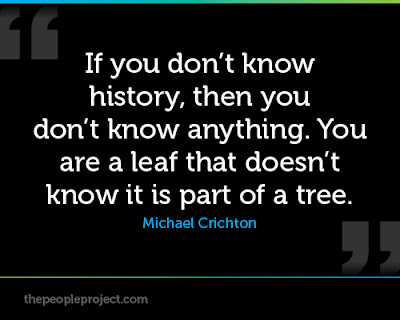 |
| Bridge to Portland from South Portland |
Not many people in the Portland, Maine area see the world as I do. It’s been five years since my wife and I bought a second home across the bridge in South Portland and I’ve kept a low profile. I do meet, however, with a group of writers every couple of months who know I’m a conservative columnist out in the hinterland. At last Wednesday’s gathering, everyone expressed dismay at the upcoming Trump inauguration and after listening for a while, I told them I voted for him. Instantly, the new person in the group who was sitting right next to me, said: “You’re an a**hole!” Everyone tightened up as I turned to look at my accuser, but no response was necessary. It was clear who the a**hole was.
 |
| Portland Marchers with signs |
Congress Street, the main thoroughfare in Portland, was blocked off Saturday when my wife and I were trying to get to the YMCA where our nine-year-old grandson, Alex, was competing in a swim meet. The local Women’s March was breaking up and as I searched side streets for a way through, women and girls were carrying their signs back to their cars. The Portland Press Herald said ten thousand turned out. That’s a lot for Maine, but I was in the heart of America’s northeast bastion of progressivism where Trump is the devil incarnate. Hardly any of the 30 million women who voted for Trump live in the Portland area.
 |
| 2016 electoral map by county |
America is indeed divided. Mainstream media are in a frenzy about it, but our country has been divided for a long time. Barack Obama lamented it in his first big speech to the Democrat national convention back in 2004: “There's not a liberal America and a conservative America; there's the United States of America… no black America and white America… The pundits… like to slice and dice our country into red states and blue states: red states for Republicans, blue states for Democrats.” He said it again in 2008, and again in 2012, promising to heal the divides, but did he?
 |
| 2008 electoral map by county |
There was indeed a red America and blue America and the divide was getting wider. Many voted for him hoping he would transcend it, but it the divide had become a chasm by the time he left the White House last Friday. Rasmussen reported last summer that: “60% Say Race Relations Have Gotten Worse Since Obama’s Election.”
The right wasn’t thrilled when Obama, then the most liberal member of the US Senate, was inaugurated in 2009 but pretty much accepted it. After trillion-dollar deficits, ramming through Obamacare, a disastrous foreign policy, an anemic economy, lies about Benghazi, the Tea Party rose up, then was blocked by Obama’s IRS.
Mainstream media praised Obama throughout but rural Americans elected a Republican House and Senate to block his policies. Republican congressional leaders sat on their hands and watched instead. Rural Americans did a slow burn when Obama condescending called them “Bitter clingers” and Hillary Clinton called them a “Basket of Deplorables.”
The right wasn’t thrilled when Obama, then the most liberal member of the US Senate, was inaugurated in 2009 but pretty much accepted it. After trillion-dollar deficits, ramming through Obamacare, a disastrous foreign policy, an anemic economy, lies about Benghazi, the Tea Party rose up, then was blocked by Obama’s IRS.
Mainstream media praised Obama throughout but rural Americans elected a Republican House and Senate to block his policies. Republican congressional leaders sat on their hands and watched instead. Rural Americans did a slow burn when Obama condescending called them “Bitter clingers” and Hillary Clinton called them a “Basket of Deplorables.”
By 2016, they were looking for someone who would go to Washington and really shake up the elites in both parties. They were ready for a bona fide butt-kicker when Donald Trump showed up. That he’d been married three times and talked about grabbing women didn’t faze them. When mainstream media attacked him and he gave it right back, they loved it. Maine’s rural Second Congressional District where I live went for Trump in 2016 while the coastal First District went overwhelmingly for Clinton. The divide in all of America between the coastal elites and the rural heartland is stark and we can expect it to get broader and deeper for the foreseeable future.
In last week’s column, I tried to poke fun at the “Pussyhat” preparations and the LGBTQIA+ meme of the Women’s March, but there’s little sense of humor among progressives. Their cause is sacred to them, a kind of surrogate religion. To laugh at them is heresy. Fifty of the organizations sponsoring the march nationwide are funded by left-wing billionaire George Soros and “Reproductive Rights,” a euphemism for abortion, was the strongest single theme. Pro-life women were banned.
 |
| Maine's congressional districts |
In last week’s column, I tried to poke fun at the “Pussyhat” preparations and the LGBTQIA+ meme of the Women’s March, but there’s little sense of humor among progressives. Their cause is sacred to them, a kind of surrogate religion. To laugh at them is heresy. Fifty of the organizations sponsoring the march nationwide are funded by left-wing billionaire George Soros and “Reproductive Rights,” a euphemism for abortion, was the strongest single theme. Pro-life women were banned.
Nearly all marchers vilified Donald Trump directly or indirectly as someone who objectifies and mistreats women. It’s interesting to note that there were no marches against President Clinton after he was formally charged with sexual harassment and paid $800,000 to his accuser, but Clinton was pro-abortion. That absolved him from the wrath of feminists no matter what he did to women.
Last week I was reminded again that progressives believe in tolerance, even of people like me who don’t agree with them, as long as we don’t speak up about it.


































